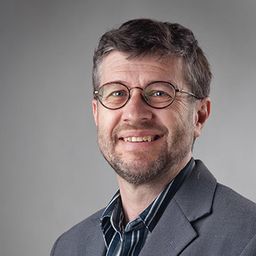
Jacqueline Charlier - Rossbach
Elementy, w których Jacqueline Charlier - Rossbach attends
niedziela 28 sierpień, 2022
Explore the banks of the Lachine Canal, the cradle of industry in Canada. Benefiting from access to hydraulic power, maritime and rail transport, large numbers of industrial facilities were built along its length. Thousands of Montrealers have lived and worked there. The banks of the canal are now a linear park, and the site of many residential developments.A walking tour designed and guided by Heritage Montréal. The visit will be in French and will...
Join the conference organisers and TICCIH board members for a welcome cocktail and some festive words of introduction, in the former forge of the École technique de Montréal, founded in 1909, now part of the Université du Québec à Montréal campus.
poniedziałek 29 sierpień, 2022
Si la vallée du canal de Lachine a été le berceau de l’industrialisation canadienne, la géographie industrielle métropolitaine ne s’y est pas confinée, peu s’en faut, Outre les grandes concentrations d’entreprises des quartiers centraux, elle est constituée des réseaux infrastructuraux, d’une douzaine de centrales hydroélectriques et des ensembles manufacturiers disséminés dans une quinzaine de petites villes aujourd’hui intégrées dans l’aire métropolitaine. La conférence proposera un surv...
wtorek 30 sierpień, 2022
Efforts to preserve industrial heritage occurs in a socio-economic and political context. But what is being preserved and for whom? And, relatedly, what is the relationship between industrial heritage sites and the deindustrialized working-class communities that often adjoin them? The keynote will consider the ways that the preservation of Montreal’s Lachine Canal, Canada’s premier industrial heritage site, has enabled gentrification processes that have forc...
środa 31 sierpień, 2022
Visit of the permanent exhibition : À cœur de jour, grandeurs et misères d'un quartier populaire, which traces the history of one of the oldest industrial and working-class neighborhoods in Montreal. Discovery of the old Généreux bathhouse, a building that recalls a time when most working-class dwellings had neither bath nor shower. Presentation of some elements of the neighborhood's heritage on the way between UQAM and the Écomusée.The visit will be guided in French by René Binette...
In this lecture, I would like to talk about deindustrialised communities, heritage and memory in the context of right-wing populism. Drawing on studies of memory and heritage, I argue that right-wing populists have cornered the market on talking about the past of deindustrialised communities. They have successfully misrepresented this rich and complex history to fuel rage, resentment, fear and reactionary nostalgia. Indeed, ‘the past’, and in particular the industr...
czwartek 1 wrzesień, 2022
This lecture will argue that the landscapes of industrial heritage that can be found in different parts of the world are directly related to the place-specific trajectories of deindustrialization. In other words: the different ways in which deindustrialization impacts on local communities has a direct bearing on the emergence of forms of industrial heritage. I will differentialte between deindustrialization paths and related industrial heritage regimes in a) Anglo-...
piątek 2 wrzesień, 2022
In the refusal of people in communities abandoned by industrial capital to abandon their own places, we can read an implicit critique of the mobility and unaccountability of capital, raised by those who were once inside (however tenuously or uncomfortably) and now find themselves marginalized, “left behind.” The desire to catch up again, whether through attracting new investment or transvaluing abandoned sites as tourist attractions, makes this an essentially conservative critique that is ...






